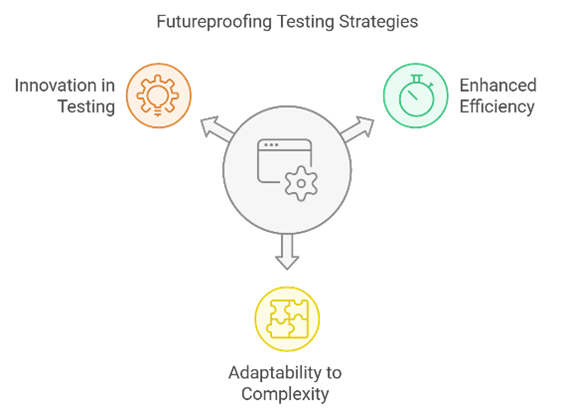In today’s fast-paced digital landscape, traditional test automation approaches are no longer sufficient to meet the demanding requirements of modern software development. Low-code test automation is emerging as a game-changing solution, with market projections showing that by 2026, 65% of enterprises will adopt low-code testing tools to accelerate their quality assurance processes.
The Evolution of Test Automation
Testing has traditionally been a complex, code-heavy process requiring specialized expertise. However, the paradigm is shifting dramatically with the introduction of low-code testing platforms. These innovative solutions are transforming how organizations approach quality assurance, making it more accessible and efficient than ever before.
iTAF: Leading the Low-Code Testing Revolution

Innovative Testing Framework
ideyaLabs iTAF (Intelligent Low-code Test Automation Framework) stands at the forefront of this transformation, offering a comprehensive solution that combines the power of low-code simplicity with enterprise-grade testing capabilities. The platform enables both technical and non-technical users to create, maintain, and execute test cases through an intuitive graphical interface.
Key Advantages
• Accelerated Test Creation: Reduce test script development time by up to 70% through drag-and-drop functionality and pre-built components.
• Cross-Browser Compatibility: Execute tests seamlessly across multiple browsers and devices.
• AI-Powered Element Detection: Leverage advanced AI algorithms for robust element identification and reduced test maintenance.
• Integrated Reporting: Access comprehensive test execution reports and analytics for data-driven decision making.
Business Impact and ROI
Organizations implementing low-code test automation are experiencing remarkable results:
| Metric | Improvement |
| Test Creation Speed | 70% faster |
| Maintenance Effort | 60% reduction |
| Test Coverage | 40% increase |
| Time to Market | 50% faster |
Future proofing Your Testing Strategy

As applications become more complex and release cycles shorter, the adoption of low-code test automation becomes not just an advantage but a necessity. iTAF’s continuous innovation ensures that organizations stay ahead of testing challenges while maintaining the highest quality standards.
Enterprise Integration and Scalability
iTAF seamlessly integrates with popular CI/CD tools and supports hybrid cloud deployments, making it an ideal choice for enterprises looking to scale their testing operations. The platform’s enterprise-grade security features ensure that testing processes remain compliant with industry standards while maintaining optimal performance.
The future of testing is here, and its low code. Organizations that embrace this transformation today will be better positioned to deliver high-quality software at the speed of business tomorrow. With iTAF, ideyaLabs is not just providing a testing tool; we’re empowering organizations to achieve their quality assurance goals with unprecedented efficiency and effectiveness.
// Example of a React-based test scenario using modern testing patterns
import { test, expect } from ‘@testing-library/react’;
import { iTAFTestCase } from ‘itaf-test-utils’; // conceptual import
const LoginTest = () => {
test(‘Login Scenario Test’, async () => {
// Initialize test case
const testCase = new iTAFTestCase();
// Test steps using async/await pattern
await testCase.navigate(‘https://application.com’);
// Using React Testing Library style selectors
await testCase.fillInput(‘[data-testid=”username-field”]’, ‘user@example.com’);
await testCase.fillInput(‘[data-testid=”password-field”]’, ‘secure_password’);
await testCase.clickElement(‘[data-testid=”login-button”]’);
// Assertion using React Testing Library
const dashboardElement = await testCase.findElement(‘[data-testid=”dashboard-header”]’);
expect(dashboardElement).toBeInTheDocument();
});
};
export default LoginTest;
This transformation in testing methodology isn’t just an upgrade—it’s a strategic imperative for organizations aiming to maintain competitive advantage in the digital age. With the global test automation market projected to reach $49.9 billion by 2026, the time to embrace low-code testing is now.